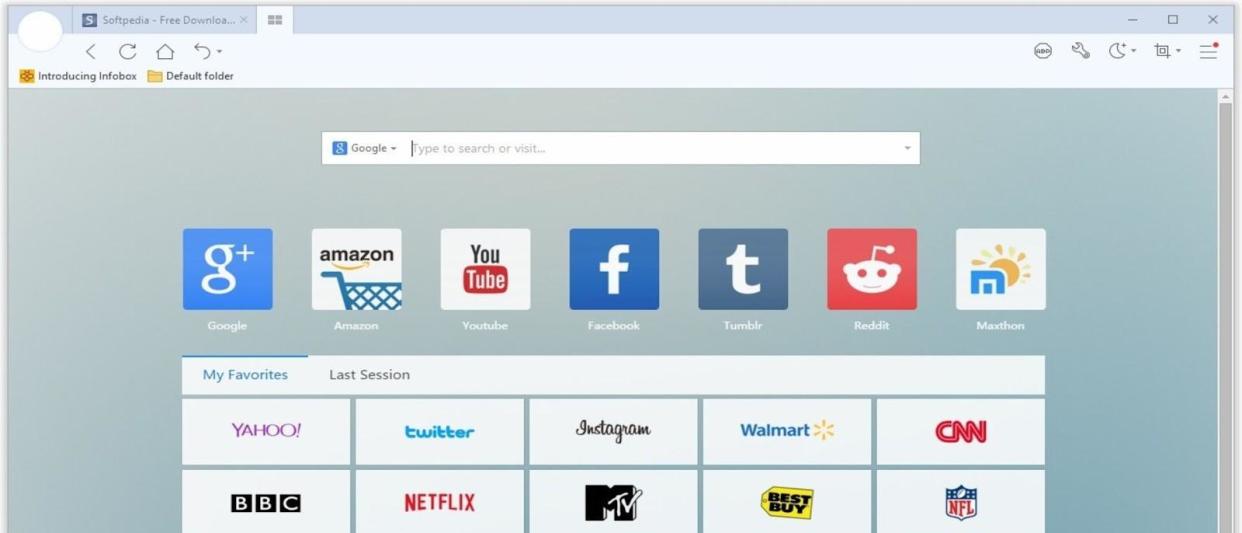Maxthon browser review

Maxthon was designed to support blockchain apps and make it easier for users to access them. Released in 2002, this Chromium-based browser is compatible with Android, Linux, Windows, and macOS. Currently, it's available in 53 different languages.
The browser is best known for its rich catalog of features. It might not be as popular as Chrome or Edge, but it certainly provides features that even such market leaders can't match.
In this review, we have covered everything about Maxthon’s features, competitors, and pros and cons so that you can decide for yourself whether it's the best browser for you.
Maxthon: Features
Maxthon comes with a built-in notepad called “Maxnote” that can be used to take notes as you browse, copy information, web addresses, and images, and arrange them on different platform devices.
The Passkeeper is a password manager that helps you save passwords, usernames, and other login credentials in one click. The next time you try logging in, Maxthon will automatically offer to auto-fill the details on your behalf.
Maxthon’s most unique feature is the “Snap Screen.” This box selection tool lets you select a particular area of the screen to take a screenshot. With most other browsers, you’ll have to take a screenshot and then crop it in the gallery. However, with Maxthon, you can directly crop the desired area before taking the snapshot. If you want to capture the whole screen with a click, go for the “Snap Page” option.
If you want to run a quick background check on certain images, videos, or music, Maxthon’s resource sniffer will be your friend. Within seconds, this feature will extract the URL of any digital asset and lead you to it. The only issue is that this feature is only available in the desktop version.
Maxthon is perhaps the only browser that lets you customize the mouse feature. Under this, you can change the mouse cursor’s color plus the meaning behind each mouse gesture.
Another benefit of using Maxthon is “Tab Grouping.” This feature lets you group tabs on similar topics together to create a more harmonious workspace. After all, if you’re working on multiple topics and have multiple tabs open, keeping track of each page without proper categorization can be challenging.
If you have a lot of tabs open at once, you can also put the inactive ones to sleep. This will prevent your system from lagging or going into overload.
Maxthon: Privacy
Maxthon, like most browsers, mentions in its privacy policy that it doesn’t disclose user data to any third party apart from certain special scenarios, such as legal cases.
Maxthon also states that it collects some amount of user data. For example, when you visit its website, it’ll collect visitor statistics such as IP addresses, usage patterns, and at what time you visit the website. Maxthon says this data is used to improve your experience and better cater to user needs.
However, if you’re uncomfortable with having your data collected, you might want to consider other options, such as DDG or Avast. Or perhaps get a VPN for added security. Read our best VPN buying guide to explore your options.
Maxthon: Ease of use
Truth be told, there are better browsers out there than Maxthon in terms of speed and security. However, its navigable interface makes it a preferable choice among users.
The main page is pretty basic. The address bar, navigation controls, and tabs are all at the page's top. Other options, such as night mode, settings, and screenshots, are all embedded in the top-right corner of the screen.
Settings contain options to manage your tabs, auto-fill passwords, and mouse gestures. You can also create and manage browser shortcuts for frequently-visited websites, which will help you save time on a daily basis.
What’s more, your favorites, such as social media sites or OTT platforms, are displayed right under the shortcuts, giving you quick access to them.
Maxthon: Competitors
Maxthon was founded way before Chrome and Edge, which is why it enjoys a user base of over 100 million users in 140 different countries.
As an old and experienced player in the market, Maxthon is aware of what users want, which is evident through its smart features.
For example, it comes with a unique screen-splitting feature that gives you two interfaces to work with at the same time. This feature is a godsend for multi-tasking fans.
Another benefit of using Maxthon over Chrome and Edge is it doesn't track your behavior. It might collect basic, non-personal data such as your time and frequency of browsing, but it’ll never spy on your online activities.
Maxthon follows Edge’s footsteps to optimize speed and performance and puts inactive tabs to sleep. The logic here is quite simple — the more open tabs you have, the heavier it is on your system. But when you put inactive tabs to sleep, it’ll free up a lot of space and CPU power which can then be used to support other apps and processes.
In terms of security, Maxthon is clearly defeated by Firefox, Opera, and Avast. It neither has a built-in tracker, a free VPN, or an antivirus. Although it does its best to protect your data, it’s fair to say that the absence of such tools is a letdown.
Maxthon: Verdict
Maxthon is a good browser for those who require higher functionality. It's not the best browser in the market in terms of performance or security, but when it comes to features, Maxthon takes the cake.
For instance, it's one of the few browsers that lets you take a screenshot of a particular section of the screen. It’s also perhaps the only browser with a one-click dark mode theme option.
New and advanced features like these, mixed with standard features like a password manager and shortcut management, make it a great investment.
